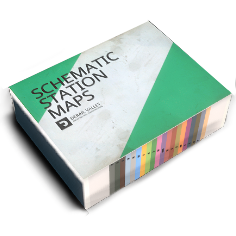Throttle: Difference between revisions
Tweaks |
m Tweaks |
||
| Line 5: | Line 5: | ||
<!--T:2--> | <!--T:2--> | ||
Throttle control | Throttle control may go through several layers of components to be carried out, be it through governors on {{pll|Internal Combustion Engine|diesel engines}}, or through electric circuitry reconfiguration on {{pll|Traction Motors|electric vehicles}}. | ||
<!--T:3--> | <!--T:3--> | ||
| Line 14: | Line 14: | ||
<!--T:5--> | <!--T:5--> | ||
Application of throttle control devices is almost always made to be oriented away from the driver. This is so that, in case of emergency, | Application of throttle control devices is almost always made to be oriented away from the driver. This is so that, in case of emergency, one can push all the levers forward as a safety measure, without needing to think of each control individually. | ||
</translate> | </translate> | ||
[[Category:Powertrains|4]] | [[Category:Powertrains|4]] | ||
Revision as of 03:46, 13 March 2025
Throttle is a control device, typically a lever or a wheel, used to set the desired power output of a motorized rail vehicle.
Throttle control may go through several layers of components to be carried out, be it through governors on diesel engines, or through electric circuitry reconfiguration on electric vehicles.
On steam engines, the equivalent of the throttle control is called regulator.
On all types of powertrains throttle needs to be applied gently, to avoid issues with wheelslip and overheating.
Application of throttle control devices is almost always made to be oriented away from the driver. This is so that, in case of emergency, one can push all the levers forward as a safety measure, without needing to think of each control individually.
